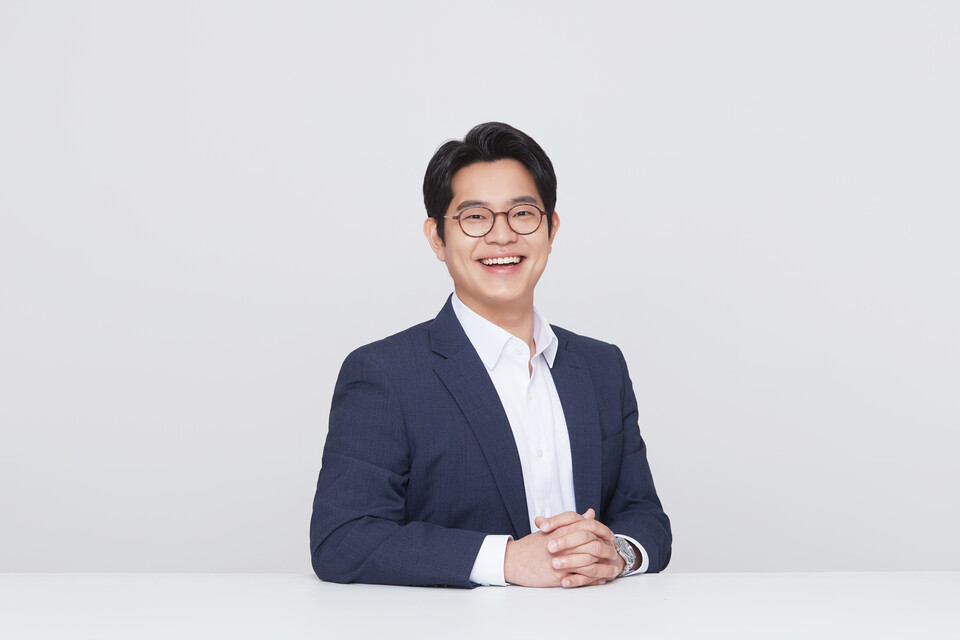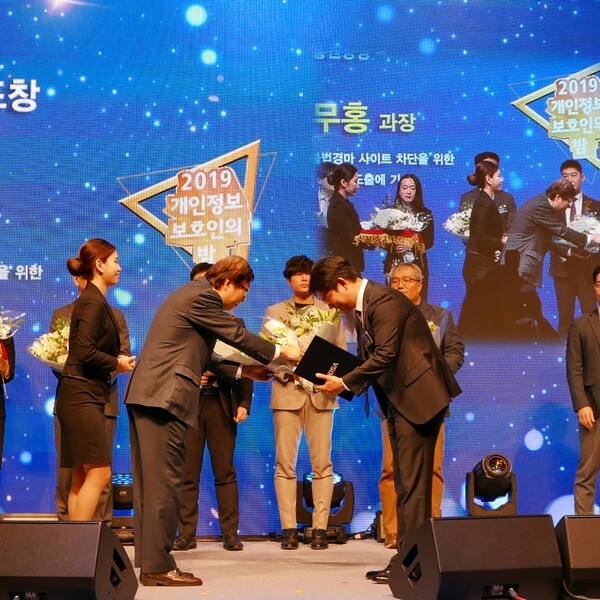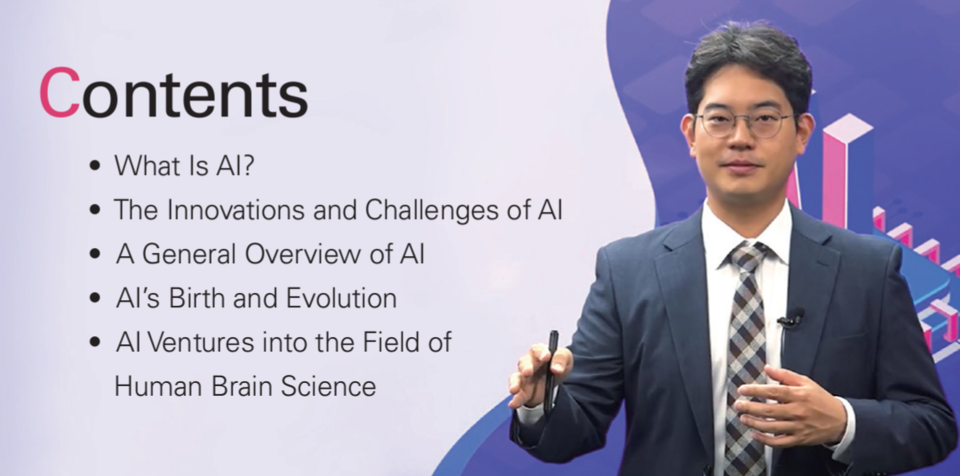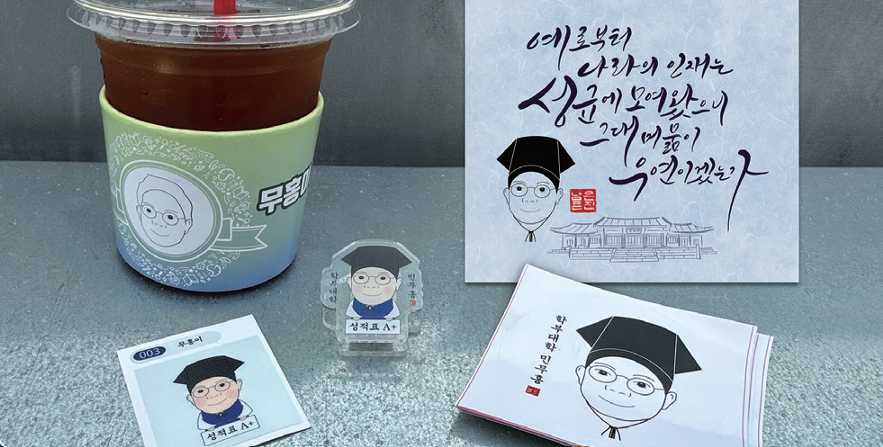For Sungkyunkwan University (SKKU) students who have taken the required Data Science (DS) courses, there is a face that they will certainly recognize beyond their i-Campus screens — Professor Min Moohong. With this, the Sungkyun Times (SKT) is delighted to share our interview with Prof. Min, an SKKU alumnus and the man who coded his way into many Kingos’ hearts.

Moohong = ‘‘With a Passion for Coding’’
Q1. Please introduce yourself.
Hello, I am Assistant Professor Min Moohong. I first entered SKKU in 2003 as an undergraduate student majoring in computer science and engineering. After graduating in 2010, I obtained a master’s degree in the Department of Mobile Systems Engineering at SKKU and eventually a doctorate in information security at Korea University.
Q2. When did your interest in coding and computers take off?
I wanted to become a computer engineer since I was in elementary school, as I have always enjoyed coding and working with computers. Similar to how young kids nowadays are learning to use Python, I also learned popular programming languages at the time, such as the Beginner’s All-Purpose Symbolic Instruction Code (BASIC). Coding especially intrigued me because of its power to bring my imagination to life. As long as I hone my programming skills, I can create my own world, whether it be a game or something else.
Q3. Among the many memories from your years at SKKU, which stands out the most?
I had a rather unusual college experience. I began my freshman year ordinarily but soon felt slightly unsatisfied with the general education courses I took during the first semester. Because I wanted to delve deeper into topics related to my major and gain practical experience at a company, I immediately applied to AhnLab, a cybersecurity company, when I saw the opportunity and began my internship in the second semester. Even after my time at AhnLab ended, I continued to participate in several activities to increase my hands-on experience, including internships, competitions, and clubs.
Q4. What did you gain from the various competitions and hackathons you joined at the time?
By entering several competitions, I found peers with whom I could create and learn things. Although I did have friends in my major, the differences in our goals made it challenging for us to connect. Among the possible careers in areas such as software development, graphic design, and research, I had my sights set on the field of security from the beginning. I had the privilege of finding my path early on, so I was able to prepare for it in advance and study ahead of others. Through various competitions and hackathons, I found a place where I could meet individuals who shared the same path and dreamed of a similar future as me.
Min = ‘‘Beloved Professor’’
Q5. How did you transition into a career in academia?
I have always enjoyed learning, even if this was not always reflected in my grades. In fact, when I was in college, I spent a lot of my time at the library. I often left as I heard the sound of the university hymn signaling it was closing for the night. After graduation, I worked at the Korea Racing Authority for 10 years. In my third year there, I wanted to deepen my knowledge in the field, so I began balancing my Doctor of Philosophy (Ph.D.) studies alongside my job for the next six years. I decided to eventually work in academia because of the merit of being able to continue my studies even after graduating. For this reason, when SKKU offered me the opportunity to return to my alma mater as a professor, I gladly accepted.

Q6. As a researcher and professor, how do you feel about returning to your alma mater?
Returning to SKKU and teaching my juniors has been such an honor. Beyond this, it has also been an enjoyable experience becoming acquainted with the Humanities and Social Sciences Campus (HSSC). Despite being a student at SKKU for more than 10 years, I never had the chance to experience the HSSC because my department was located on the Natural Sciences Campus (NSC). It is only now, as a professor of three years in the HSSC, that I have been able to truly enjoy everything that it offers.
Q7. Please share your area of research with Kingos, who may be unfamiliar with it.
Although security is my main area of research, I have been focusing my studies more on the research of illegal gambling. I began studying this specific area after seeing the illicit gambling cases firsthand in my past workplace. By merging the branches of information security and artificial intelligence (AI), I aim to find strategies that efficiently identify and block gambling sites, as well as research solutions to help deal with underage gambling.
Q8. What do you pay attention to when teaching programming to students of non-STEM majors?
When teaching coding in classes comprised of students who do not study science, technology, engineering, and mathematics (STEM), I take the time to fully explain and repeat concepts. I also introduce new topics by sharing related materials that have been discussed in the past. In comparison to STEM majors who may have had prior exposure to coding, many non-STEM students are only learning this for the first time and thus need more explanation.
Q9. Why is it essential for individuals with non-STEM backgrounds to learn how to code?
Nowadays, a life without computers is difficult to imagine. Everything is related to computers in a certain way. If you would like to maximize the potential of computers, you must know how to code. When developing an application or website, possessing a basic background in coding will give you the ability to modify existing frameworks and apply them to your own. Coding is a versatile tool that not only enhances your productivity but also allows for a more enriched life.

Q10. How would you define “beautiful code”?
I believe that “beautiful code” should be comprehensible to anyone who sees it for the first time. Many skilled developers would define beautiful code as concise and efficient. However, this type of code can be challenging to read for those who are not well-versed in the area. It is as if they have created a whole different world that only themselves can understand. In my opinion, beautiful code is written and explained in a way that anyone can easily understand.
Q11. Kingos often refer to you with the nicknames “GOAT (Greatest of All Time) Moohong” and “Bright Moohong.” What do you prioritize when interacting with students?
I interact with my students with the mindset that they are not just any students but my juniors. Akin to the saying, “The skin is nearer than the shirt,” I naturally want to explain one more concept or meet them once more. I even attended Daedongje last year, where I enjoyed PSY’s performance and talked to a few Kingos. Also, I have special customized gifts that I give out to students. My wife, who does calligraphy, designed clips, stickers, cup sleeves, and other gifts. Feel free to approach me or say hello, and I will be more than happy to give you something.

print(Min, Moohong)
Q12. How do you think coding will be utilized in the next decade, and what do you envision yourself doing?
Considering the rapidly evolving world, I think we will reach a point where we code instead of speaking. Even now, simply inputting a prompt on ChatGPT gives you a snippet of code. In fact, we are already coding with words. I believe there will come a time when everything outside of face-to-face interactions will be comprised of codes. At this time, I will probably still be teaching my juniors at SKKU and conducting research in my field.
Q13. Errors are an unwanted but unavoidable part of coding. Do you have any words of encouragement for Kingos who are facing errors in their lives?
Just like errors in life, mistakes or bugs happen all the time while coding. In fact, there is a term to describe the process of fixing these bugs — debugging. Kingos, remember that there is nothing you cannot debug if you put in the time and effort to solve it. For now, I hope that you can put your worries aside for a while and enjoy the upcoming Daedongje!
